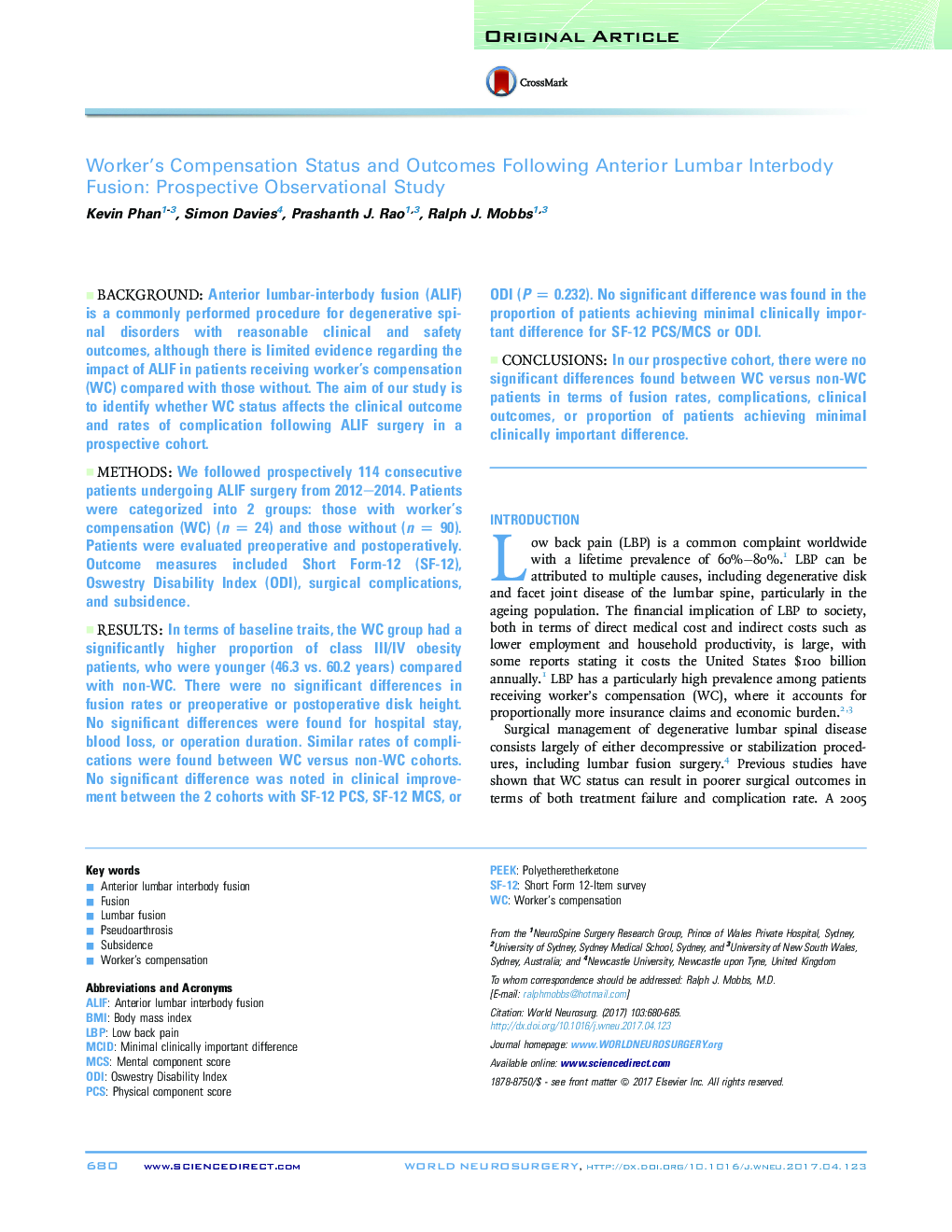| Article ID | Journal | Published Year | Pages | File Type |
|---|---|---|---|---|
| 5634347 | World Neurosurgery | 2017 | 6 Pages |
BackgroundAnterior lumbar-interbody fusion (ALIF) is a commonly performed procedure for degenerative spinal disorders with reasonable clinical and safety outcomes, although there is limited evidence regarding the impact of ALIF in patients receiving worker's compensation (WC) compared with those without. The aim of our study is to identify whether WC status affects the clinical outcome and rates of complication following ALIF surgery in a prospective cohort.MethodsWe followed prospectively 114 consecutive patients undergoing ALIF surgery from 2012-2014. Patients were categorized into 2 groups: those with worker's compensation (WC) (n = 24) and those without (n = 90). Patients were evaluated preoperative and postoperatively. Outcome measures included Short Form-12 (SF-12), Oswestry Disability Index (ODI), surgical complications, and subsidence.ResultsIn terms of baseline traits, the WC group had a significantly higher proportion of class III/IV obesity patients, who were younger (46.3 vs. 60.2 years) compared with non-WC. There were no significant differences in fusion rates or preoperative or postoperative disk height. No significant differences were found for hospital stay, blood loss, or operation duration. Similar rates of complications were found between WC versus non-WC cohorts. No significant difference was noted in clinical improvement between the 2 cohorts with SF-12 PCS, SF-12 MCS, or ODI (P = 0.232). No significant difference was found in the proportion of patients achieving minimal clinically important difference for SF-12 PCS/MCS or ODI.ConclusionsIn our prospective cohort, there were no significant differences found between WC versus non-WC patients in terms of fusion rates, complications, clinical outcomes, or proportion of patients achieving minimal clinically important difference.
